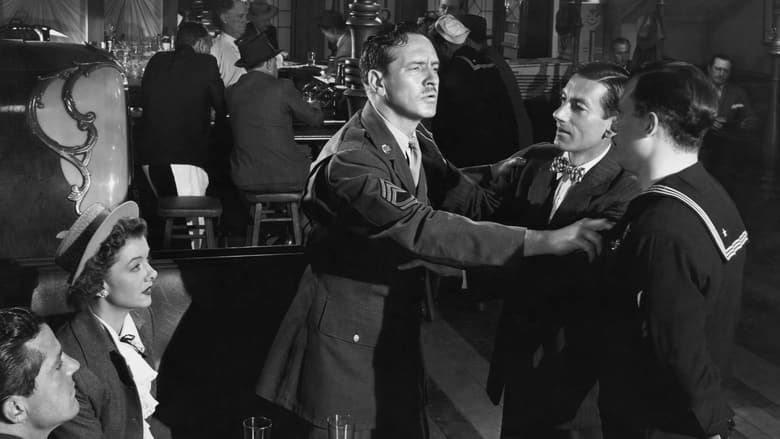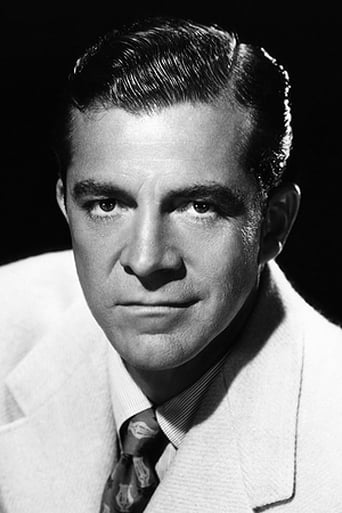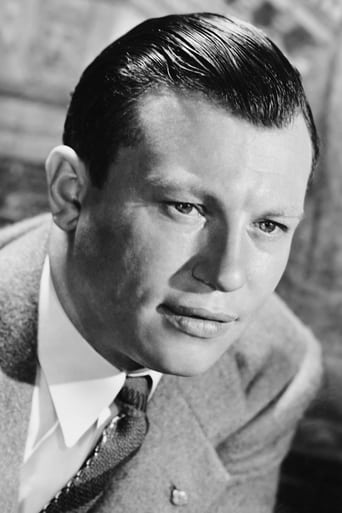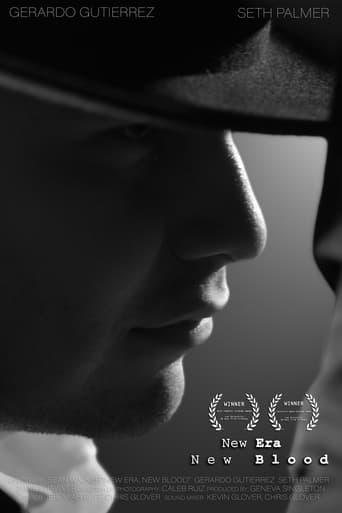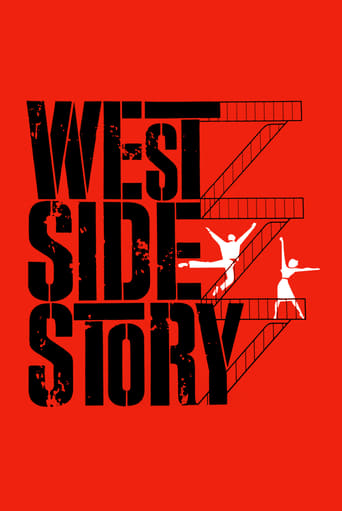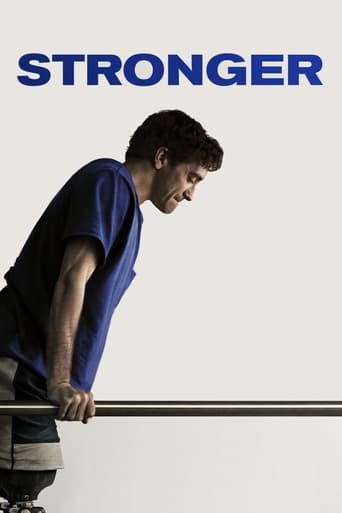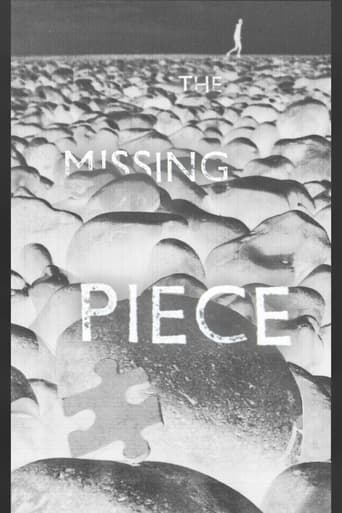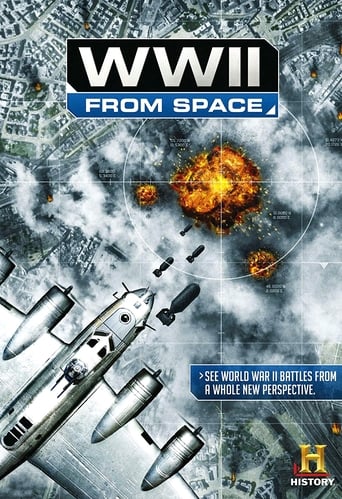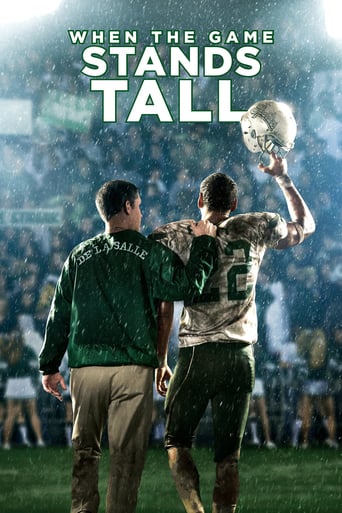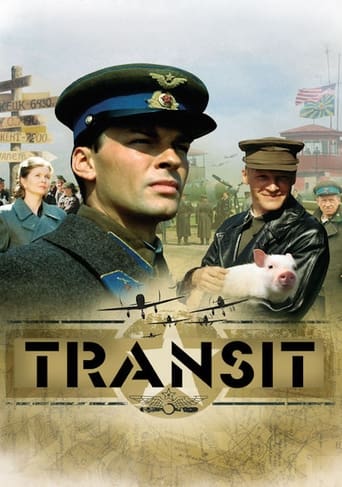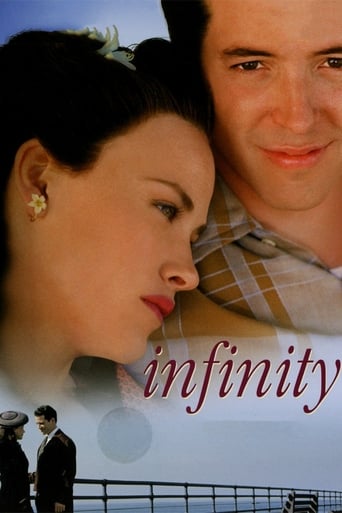The Best Years of Our Lives (1946)
It's the hope that sustains the spirit of every GI: the dream of the day when he will finally return home. For three WWII veterans, the day has arrived. But for each man, the dream is about to become a nightmare.
Watch Trailer
Free Trial Channels
Cast


Similar titles
Reviews
terrible... so disappointed.
Purely Joyful Movie!
Easily the biggest piece of Right wing non sense propaganda I ever saw.
Mostly, the movie is committed to the value of a good time.
An article in Time (7 August 1944) about the return of injured veterans, provided Goldwyn and his wife with the idea for the film. Accordingly, Goldwyn asked Mackinlay Kantor, a former Air Force correspondent who had been stationed in England, to write an original story based on his experiences. Kantor delivered the result, a 434-page novel entitled "Glory For Me", written in blank verse, in January 1945. Goldwyn then handed it to Robert E. Sherwood to use as the basis of a screenplay.After shooting for more than 100 days at a cost of over $2,000,000, Wyler edited his 400 reels to 16 - 2 hours and 52 minutes worth. Even though he was frustrated in his wish to cut it down by a further half-hour, Wyler considered it the best film he had yet made. His technique is faultless: His use of the mirror stratagem re-appears, this time in duet for the comic purpose of doubling the image of Fredric March in the megrims of the morning-after; the window enclosing remote (and now relevant) action can be found in the drugstore sequence where it brackets the managerial office with the busy salesroom below; the sparingly-used close-up has a poignant effect when it rests upon the wistful countenance of Harold Russell or details Teresa Wright's shattered face, caught in a moment of anguish.A particularly impressive episode is Derry's visit to the bomber graveyard - Wyler composes a symphony for this scene out of visual and orchestral effects. The music is excellent, Friedhofer's musical motifs frequently growing out of the scene itself, be it Hoagy Carmichael's piano jingles, Marie's strident radio, or the jungle rhythms of a nightclub band.
When Al Stephenson asks his children "You've changed, what happened?", "just four years of normal growth" says his daughter Peggy, kisses and joy ensue while this line is cooking in our head. Yes, one simple absence is liable to create shifts of misunderstanding even with your beloved ones. I have always said that besides love and respect, understanding was the underrated cement of relationships, "The Best years of Our Lives" explore that issue through the intertwined post-war lives of three WW2 veterans.Fredric March is Al, a forty-something banker who comes back unwounded but fails to recognize his home, Peggy (Teresa Wright) grew up and gained such maturity she became a mother's substitute and his son has long abandoned the war's patriotic scope for more sensitive questions about the use of the Nuclear force. The housewife (Myrna Loy) is overwhelmed by Al's come-back but you can feel the tension, when the heat is over, Al feels entrapped and needs to celebrate his comeback anywhere but out of the house. That "Going for a drink" excuse was subtly foreshadowed by the similar reluctance of Homer Parrish to meet his folks. Homer is perhaps the heart of the story, a sailor who lost his hands in duty but took it all in stride, minimizing the loss and being thanking the Navy for having taught him the use of his hooks. We're impressed by his ability to light a match and sign his name but as Al points out, they never taught him to take his fiancée in his arms and stroke her hair, though a better line could have been "they didn't teach the family to handle them".Homer's no fool, he notices her mother's sobbing gasp at the sight of the hooks and knows he's going to handle awkward guilt-driven demonstrations of love. As a result, he doesn't even talk about the marriage with his fiancée (Cathy O'Donnell) fearing she couldn't handle it, or maybe wishing she wouldn't. The irony of Homer, played with genuine intensity by Harold Russell, is that he doesn't want to be seen as a freak but is reminded of his handicap because he looks in people's eyes like in a mirror, or does he see his own reflection?And then there's Fred, Dana Andrews, he comes from a poorer neighborhood and his wife (Virginia Mayo) seemed to have left the house. She's obviously a "tramp" and soon the pride and exaltation of having a dashing husband in his uniform leads to the disillusion of unemployment. Once a respected and brave captain, Fred becomes a soda jerk, a loser in the eyes of society and his wife, for what it's worth. Fred finds the needed comfort in Peggy, she can see that he's unhappy in marriage, likewise in society.Now that the most prevalent war veteran figure is the Vietnam vet who saw his best friend being blown to pieces in Nam, here's 1946 Best Picture, directed by ace director William Wyler, and reminding us that post-war isn't just all about PTSD, shell shock and dark memories, there are physical and emotional scars, but perhaps the toughest part of the job is to try to adjust yourself to a world that changed, before you realize you're the one who changed. "Mudbound" handled that issue in 2017, and quite well."The Best Years of Our Lives" centers on these three men's lives and their families in the generic town of Boone City. Each man represents a side effect of the war. Although it would be tempting to treat their arcs separately, I like the way the three of them tie the plot together and rather than speaking different statements about a subject, make a positive message converging toward its heart-warming conclusion, after almost three hours of a journey into the everyday lives of normal citizens.And this is what impressed me the most in Wyler's tone, he doesn't go for any sensational effect, or overuse of pathos, there's no forced drama or twists, the film is long because it has a certain desire to build solid and realistic bonds. In any other movie, the romance between Teresa Wright and Dana Andrews would look phony and contrived but the first day is as long as the wedding in "The Godfather", you feel the realness of every interaction, and both Andrews or Wright seem to succumb to a relationship they wanted to resist first.The performances are so good I couldn't believe only March (who was splendid) and Russell were nominated, they won though, and Russell even won a second Oscar for his inspiration for WW veterans. But if you consider the whole cast, Myrna Low, Dana Andrews and Teresa Wright deserved nominations as well, but I guess they weren't because sometimes, the talent of an actor is enhanced by the directing, and the film owes a lot to William Wyler. It can ever be regarded as a school case of masterful directing.Indeed, what we take for great acting is sometimes a wonderful attention to details and characters behaving independently. In the Parrish' reunion scene, check how the father and then the mother has their first glimpses on Homer's hooks and try to ignore it. Another masterstroke is the phone booth scene, consisting on Homer playing piano with his Uncle (Hoagy Carmichael), Harry listening to them and Fred making a crucial phone call at that moment. Three actions compacted in one scene, meanwhile, many long moments dedicated to seemingly mundane trivialities, eating breakfast, dancing, drinking, working at the office.Wyler knows what deserves several minutes and what can be handled in one and each character is given enough time and substance. And you know why? Because the story is all about people trying to reinvent themselves, for that, we need to know a little about their background, about what they are, and what they want to be, the film looks simple, but it's far more complex, intellectually engaging. Not to mention 100% relevant today.
I was never censored as a child...but I was encouraged and Dad ALWAYS encouraged my little sister and I to watch AMC back when AMC was showing classic movies all the time.MOST of the time. There were more than a few films that he would use the adult veto on because he hated them as a kid...This was one of them.I can't understand why. I remember watching this when I was around 7 and loving it. So involved in the banker's daughter and the old bomber and would they get together? Would he find a job? Would the guy with no hands make it out OK in the end? As a kid I was hanging on the edge of my seat watching the trio move through the transition from war to civilian life like your childhood babysitter watches a Soap Opera.I was fixated then...now as an adult I unfortunately know how it ends, but am still mesmerized by the beauty of it all and how moving the story is.There are few movies as beautiful and fulfilling as this.
If I watched this movie before I watched Bicycle Thieves, maybe it would've ended up as just another post-war movie for me. But in combo of Bicycle Thieves, this movie tells the complete story from both sides of the war victors and losers; none get the happy live. War torn everything, even the lives of the victors. We see it first hand as how Homer struggles to regain himself after losing his hands. Fred also struggles as he has everything a decent man dreams of, but lacks any other skill that he has to bow himself down to the harsh reality of the available work. AL also struggles morally as he chooses to do the right thing. And as we see only Homer's and Frede's story closes out well, as Al's didn't really get a justified ending to his ordeal. The actors did a great job in bringing live to the scenes.

